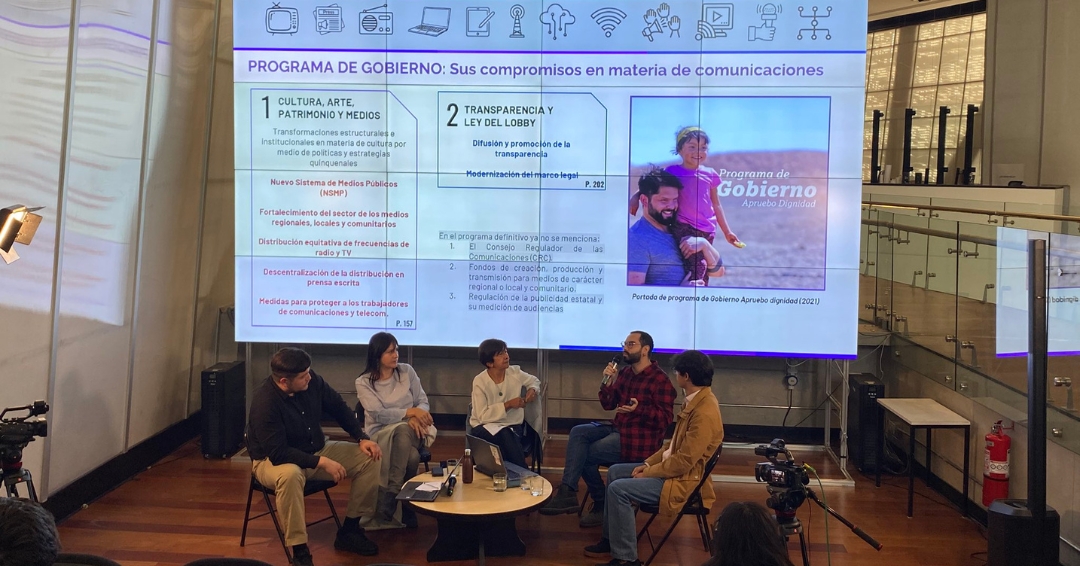The statements and actions of American big techs in the context of Donald Trump’s inauguration seem to kickstart a year in which the geopolitics of technology decisions will become brutally evident.
They remind us of Michel Foucault’s quote that “politics is the continuation of war by other means”, but also of Herbert Schiller, who claimed 50 years ago that mass communication was the squire of the economic and military expansion of the United States, coining the concept of cultural imperialism.
Because technological media change, but geopolitical interests not so much. That is why one of the postcards for posterity of the transfer of power was the privileged position held by the Silicon Valley tycoons (Musk, Bezos, Zuckerberg, Pichai) in the assumption of Trump. These are the richest men in the world and represent the most influential companies on the planet, and all of them are based in the United States.
In the first days of 2025, the owner of Meta, Mark Zuckerberg, published a video full of cues along the same line. First of all, there were three announcements: i) Elimination of external specialized fact-checking teams on his digital platforms in the United States, which will be replaced by notes from the community, like Elon Musk did with X. The reason: the fact-checkers’ leftist bias; ii) Simplification of moderation policies to eliminate existing restrictions on topics such as immigration and gender because, in his opinion, current moderation policies have contributed to reducing the debate rather than expanding it; and iii) Greater visibility of political contents.
In addition to these announcements, he made statements amid geopolitical tensions such as criticizing the regulations imposed on platforms by the European Union through directives and laws, “institutionalizing censorship”, or stating that Latin America has“secret courts that can order companies to quietly take things down”. Of course, he also referred to Chinese censorship.
Zuckerberg pointed out that both his announcements and his criticism had a single motivation: to protect freedom of expression from the attack of foreign governments that Meta intends to counter “with the support of President Trump”.
Thierry BretonThierry Breton, European Commissioner for Internal Market from 2019 to 2024, indirectly replied to Zuckerberg’s (and Musk’s) criticism, arguing that the European legislation seeks to ensure transparency and control over the algorithms used by platforms and to protect users, and that these laws do not censor but rather focus on fines when platforms fail to comply with their antitrust obligations in the region.
Breton also hinted that the underlying problem of these companies in Europe is commercial rather than value-based or political: a fragmented market is easier to control than a strong, unified one, even though the strategic alliance between the United States and the European Union is currently under a redefinition process and treatment of big techs in Europe seems to be part of the negotiation.
On the other hand, the cited “secret courts” in Latin America are clearly an allusion to the pressure exerted by the Brazilian court to require an X office in the country -without secrets and exercising its legal obligation- while Trump makes supremacist statements about the region.
The issue with China is a different matter, as there seems to be a discrepancy between big techs and Trump regarding how to proceed with Tik Tok in the United States. The latest moves of the Chinese artificial intelligence company DeepSeek seem to open another flank in this dispute.
At first glance, the attempt by American big techs to improve their relations with Trump, with whom they have had various moments of tension in the past (mainly removal of contents and accounts), is evident. But the issue has more layers. One of them relates to the conflict between freedom of expression and platform regulation.
Zuckerberg’s statements are reminiscent of the old “free flow of information” doctrine, according to which any statutory regulation of communication companies is a violation of freedom of expression. It is curious, however, that he does not consider Meta’s alignment with the geopolitical strategy of Trump’s administration a breach of this principle.
A similar omission can be observed in the statements of Joel Kaplan, Meta’s chief global affairs officer, who spoke of “getting back to the values on which the company was founded”, carefully avoiding referring to the size and volume of the user base that these platforms currently have, or in the Cambridge Analytica scandal, which is the great rift behind the concern to enforce controls, mainly commercial, on these companies in the past seven years. Bad memory fuels gaslighting.
But this high theater is not only a defense of the particular way of understanding freedom of expression that has characterized the United States. It also has to do with how this internally fractured country aspires to keep being a benchmark in global geopolitics.
Kaplan has said that Trump is really interested in making sure that the United States maintains its competitiveness and technological leadership, but always in partnership with big corporations. We are simultaneously witnessing his disinterest in public media , and it remains to be seen whether he will once again repeal the net neutrality law like he did in his first term.
All of this is without mentioning the regulatory challenges that AI will bring or how these technological developments interweave with the American military war complex.
The question that remains open in this regard is: How does Latin America position itself in this scenario? The region urgently needs to think of itself as a unique digital market and start to develop a multilateral conversation in this sense.
Is our country prepared for this conversation? Or will we continue to be part of the caboose, content with having Santiago as the number 1 city in the world in connectivity and optic fiber?
By Chiara Sáez, January 2025.

